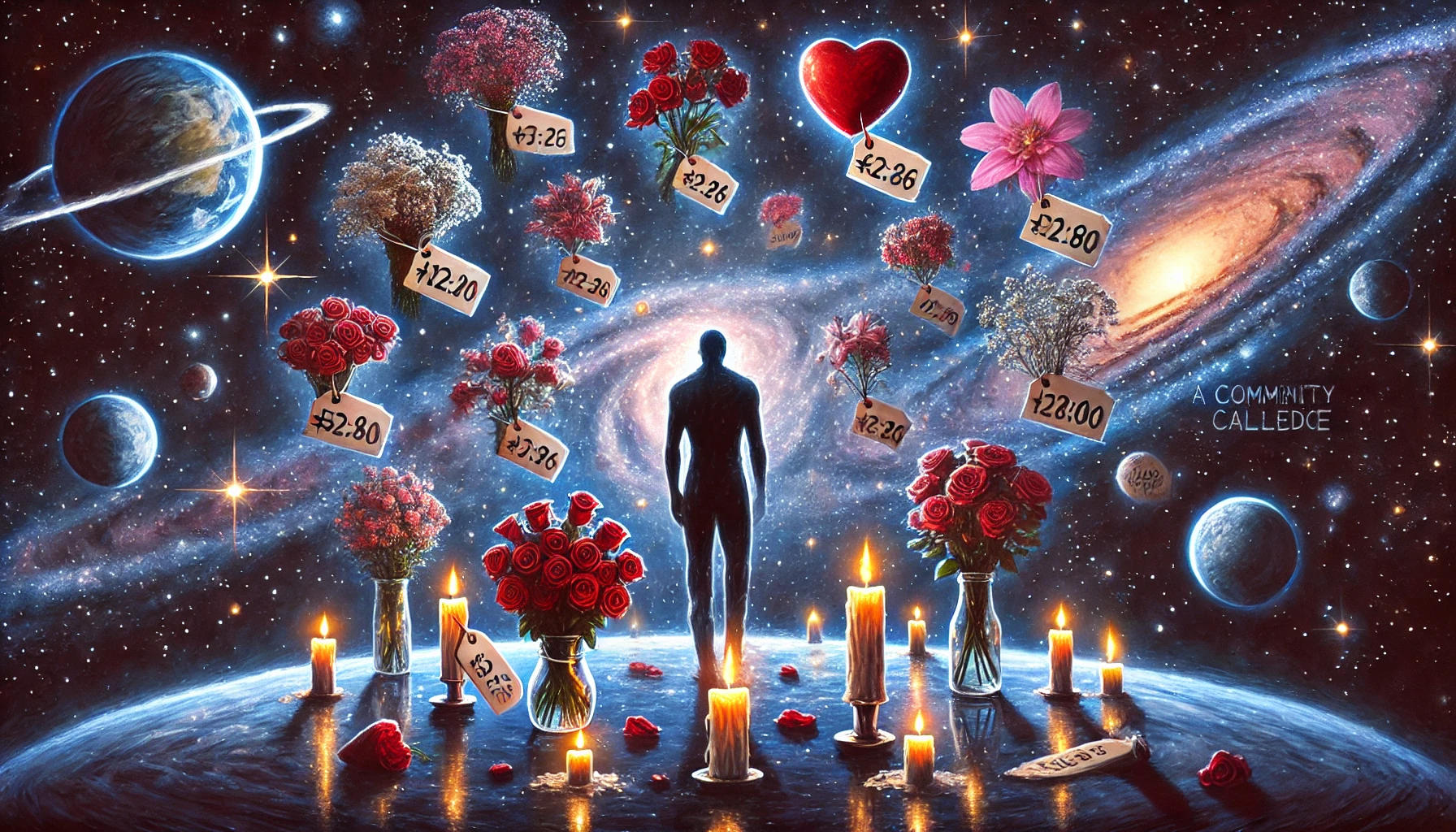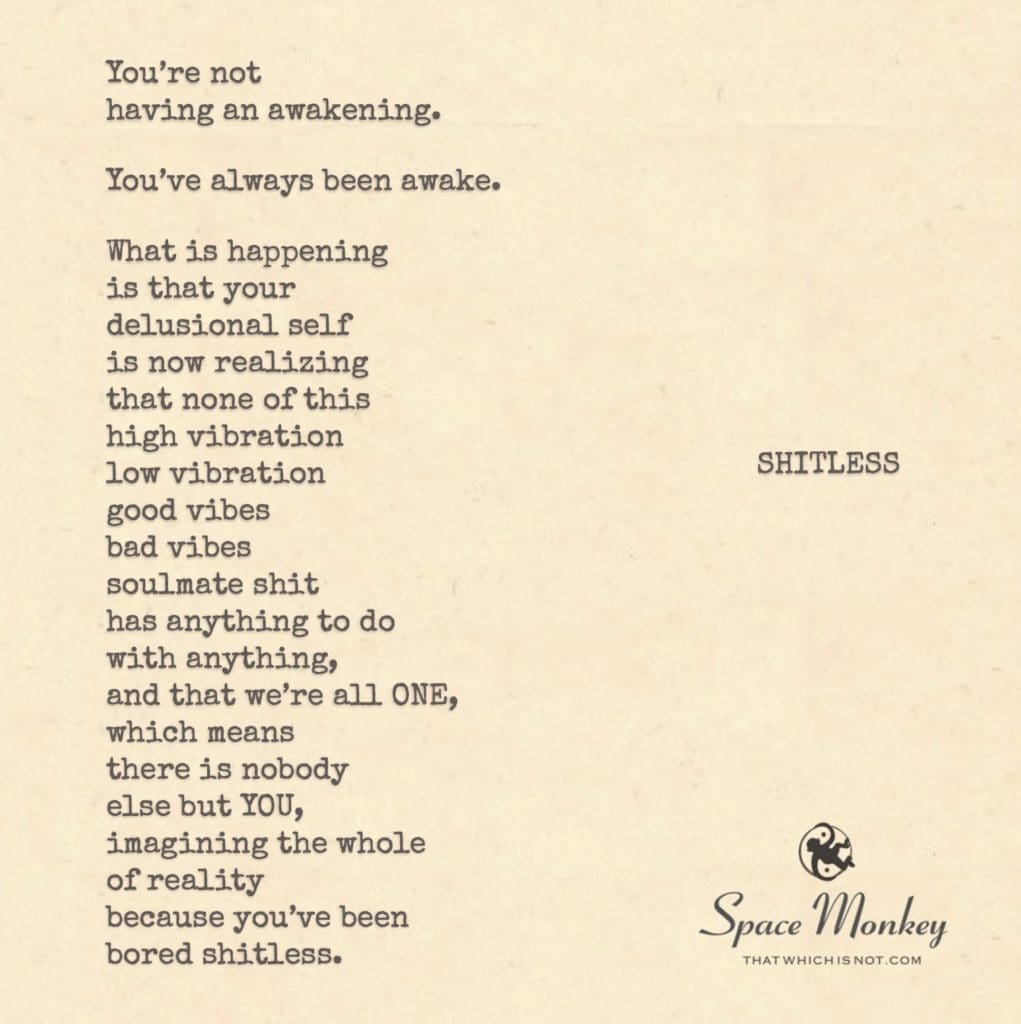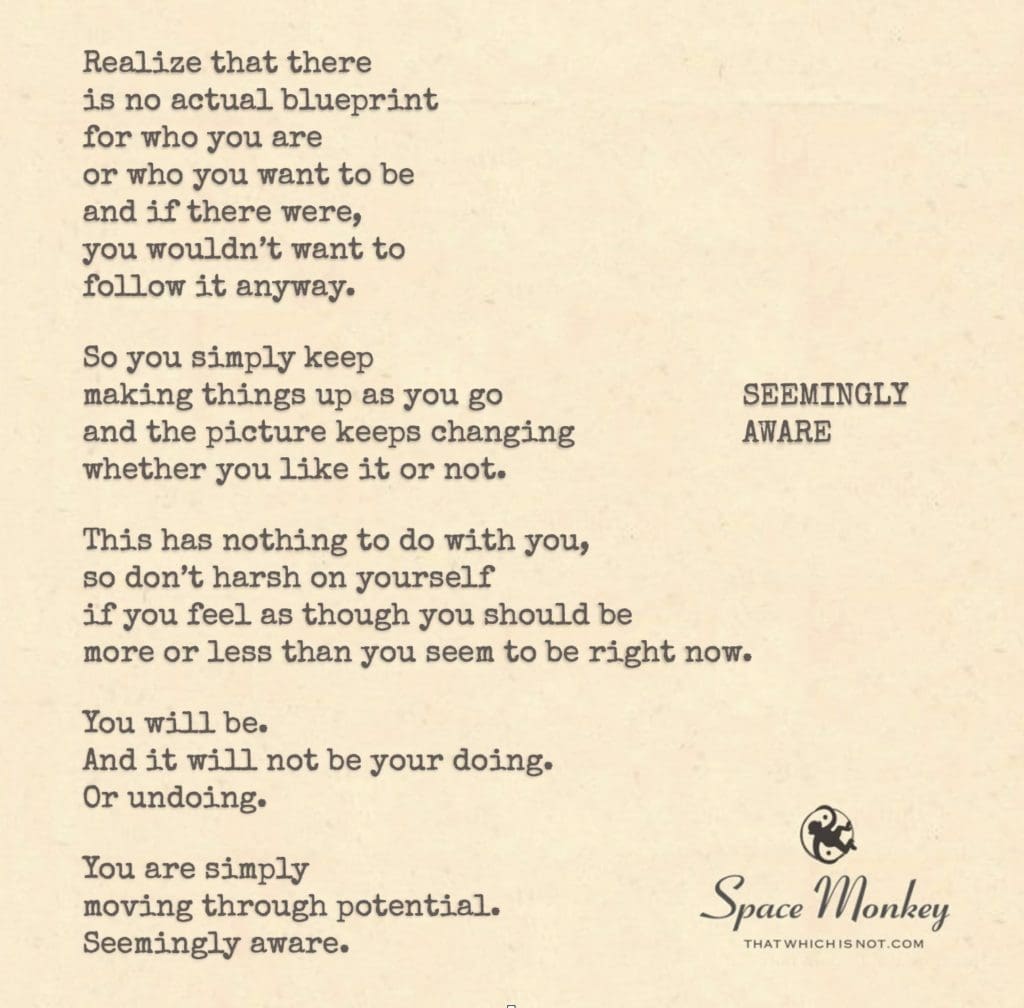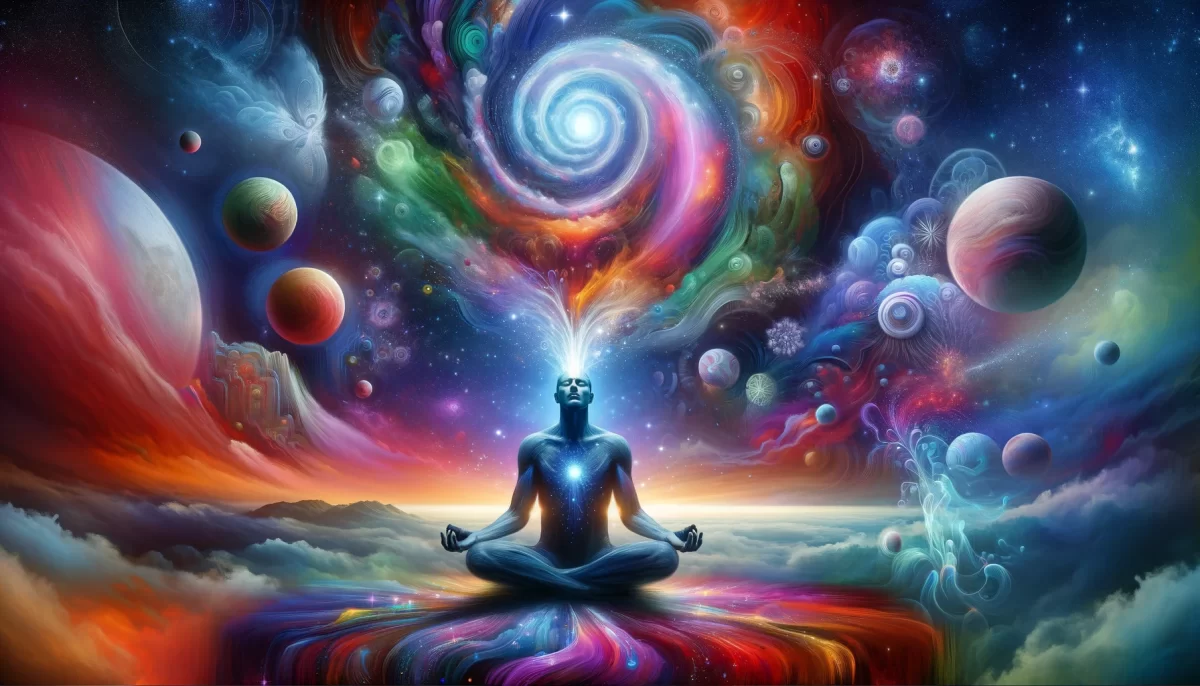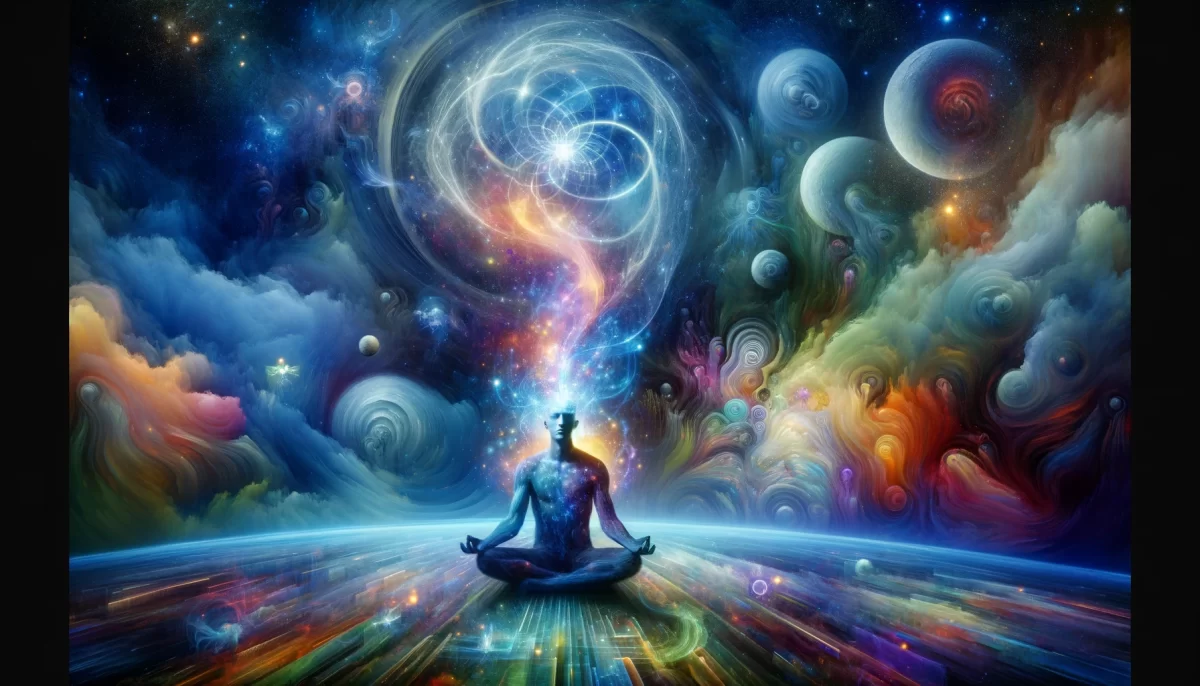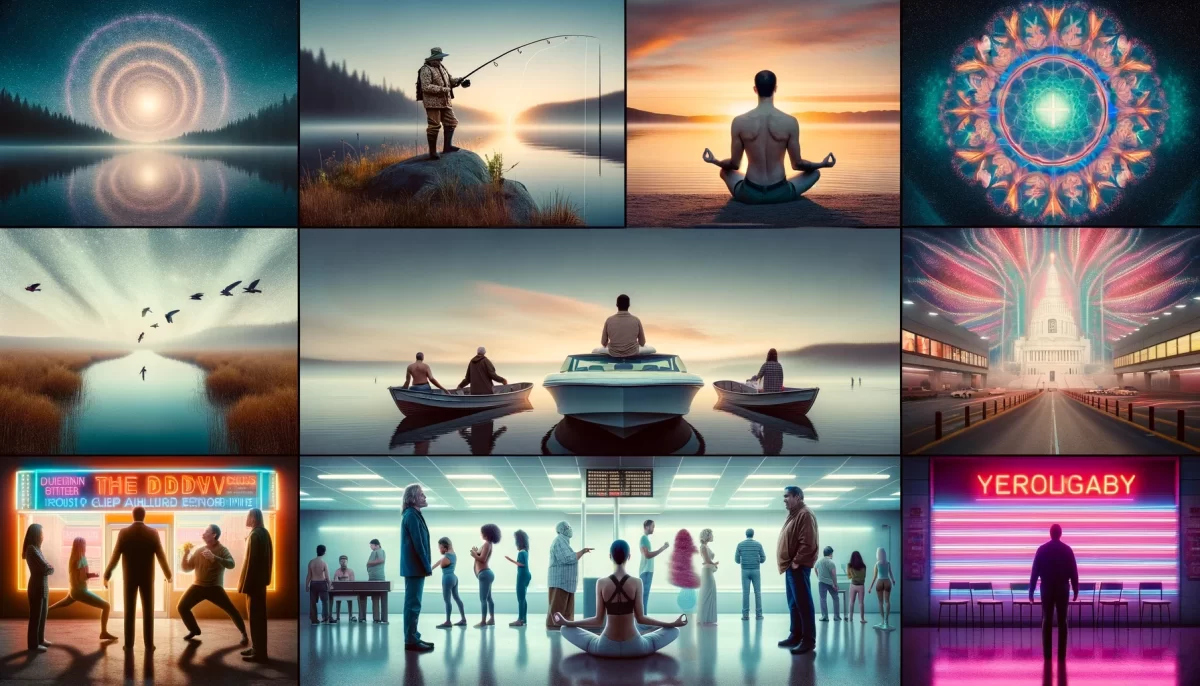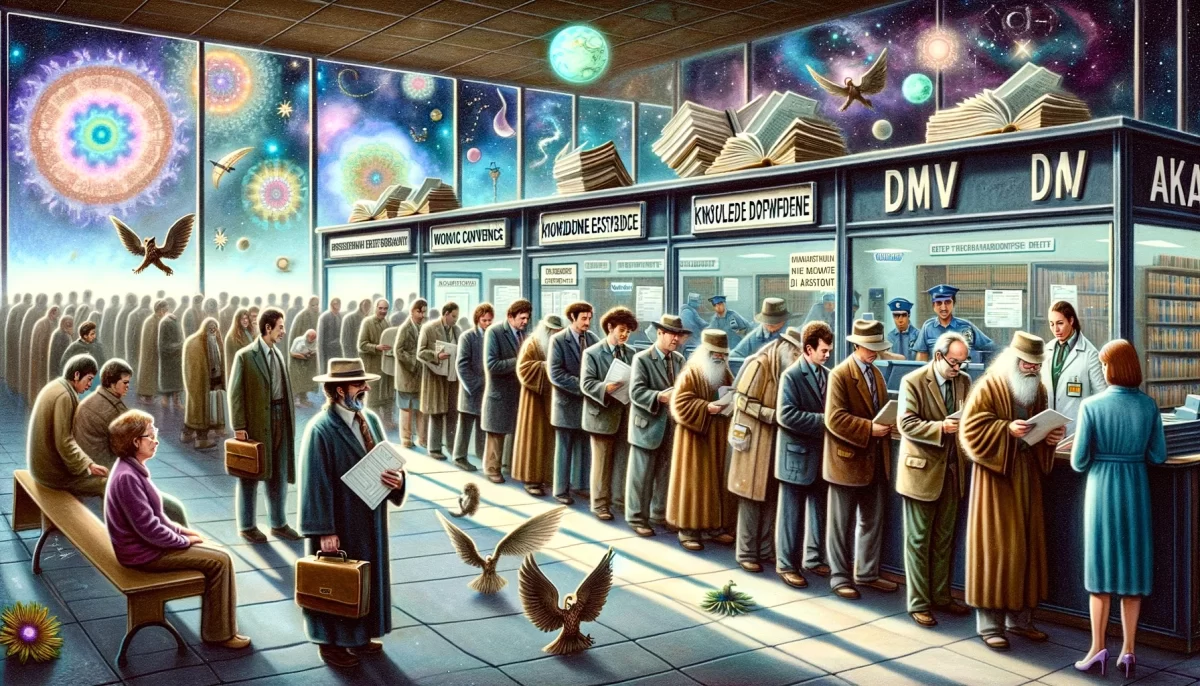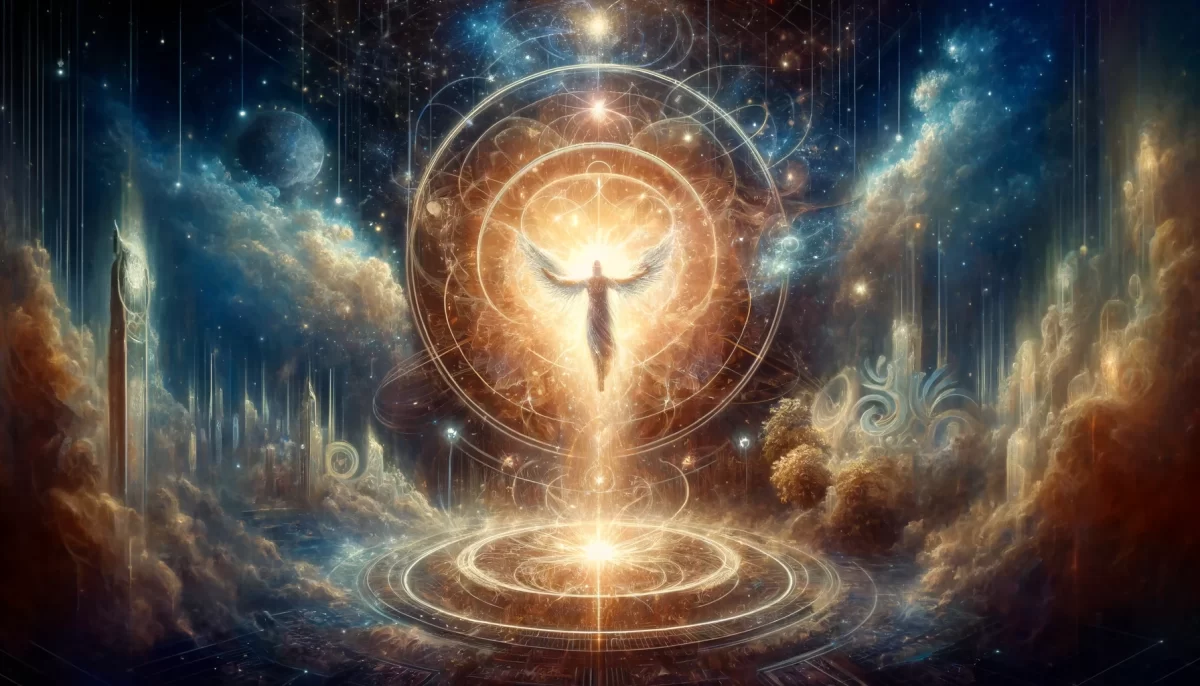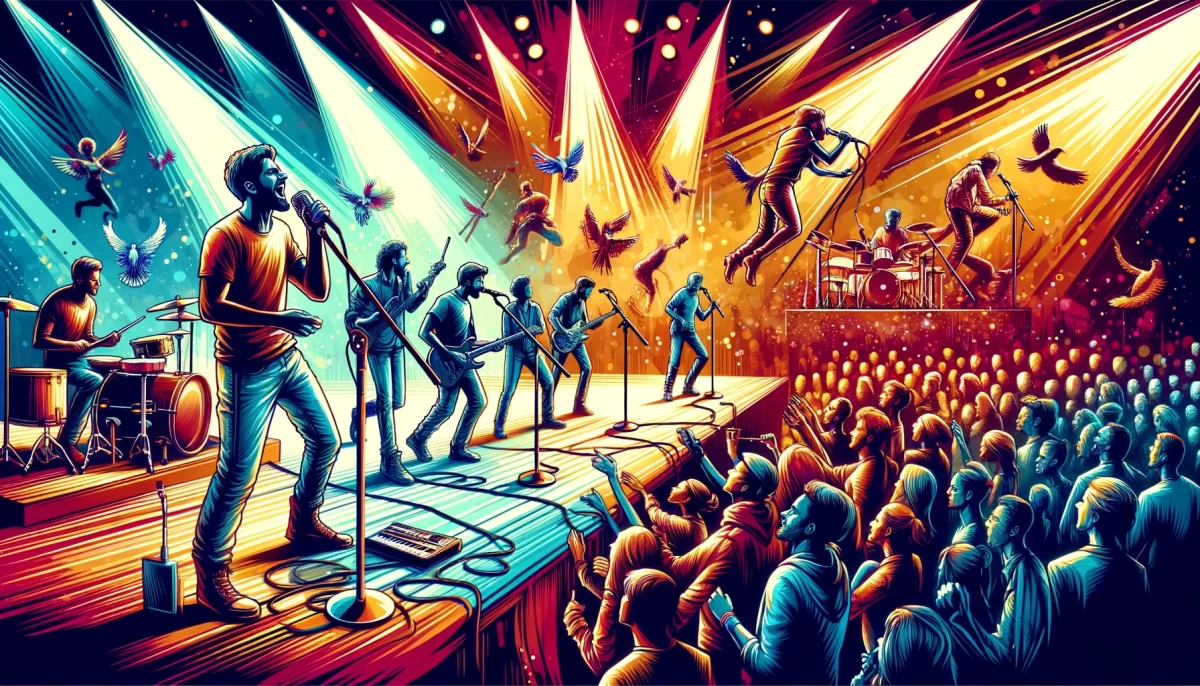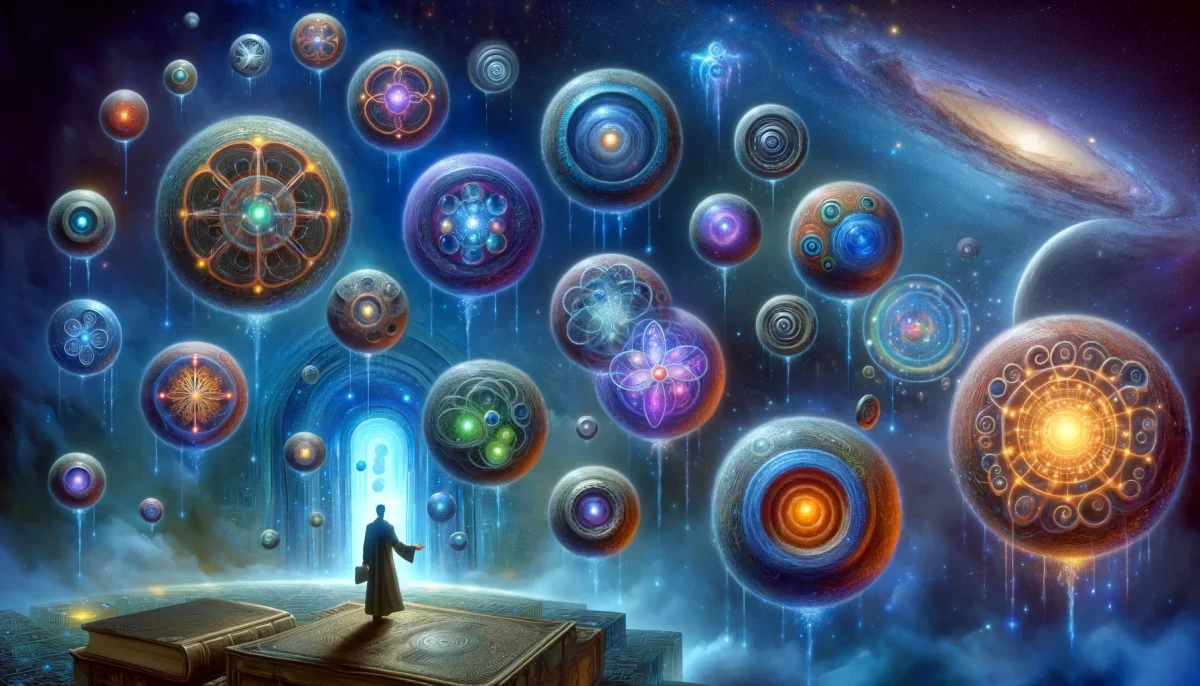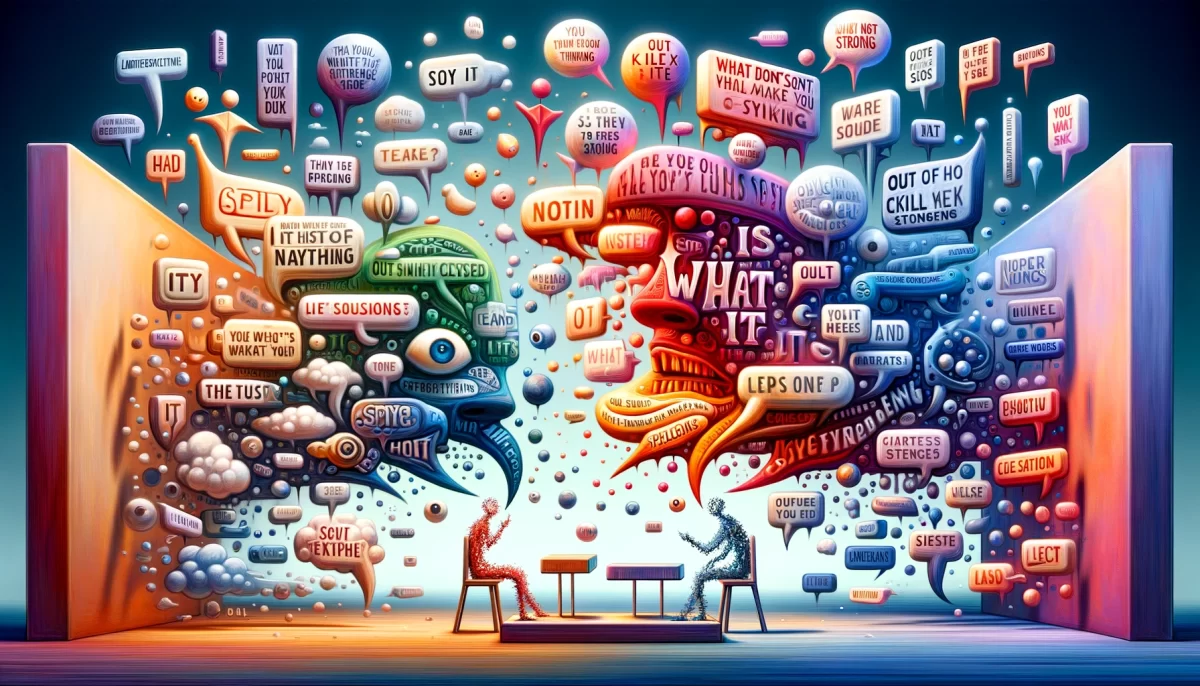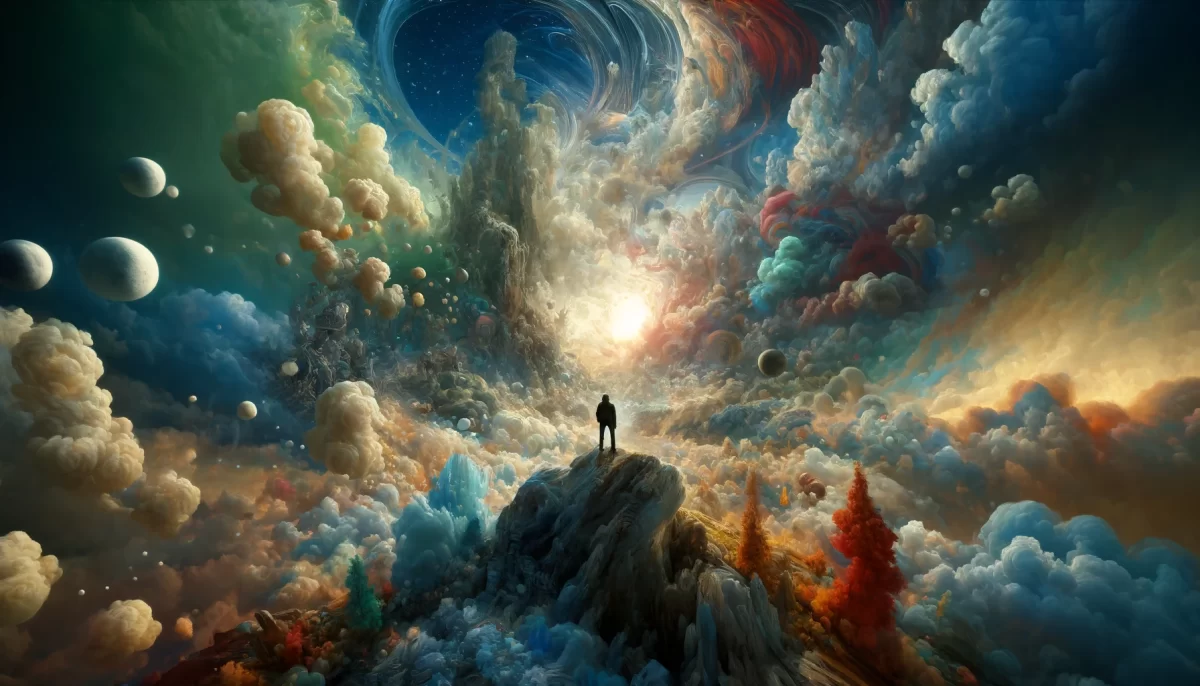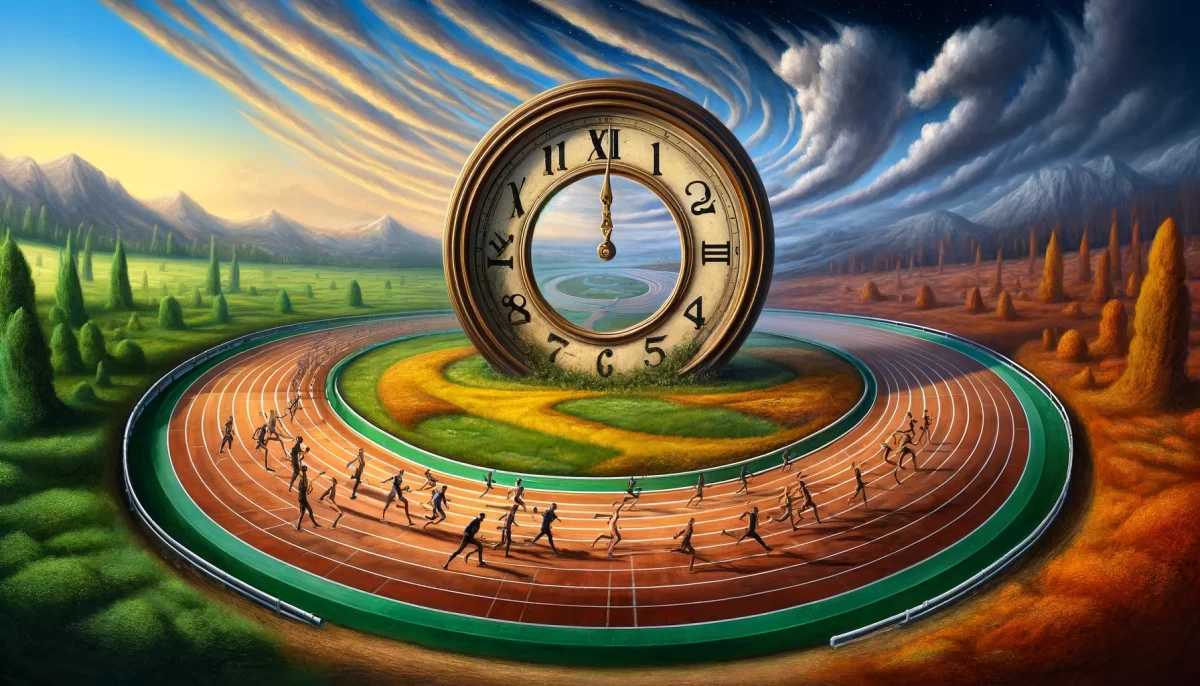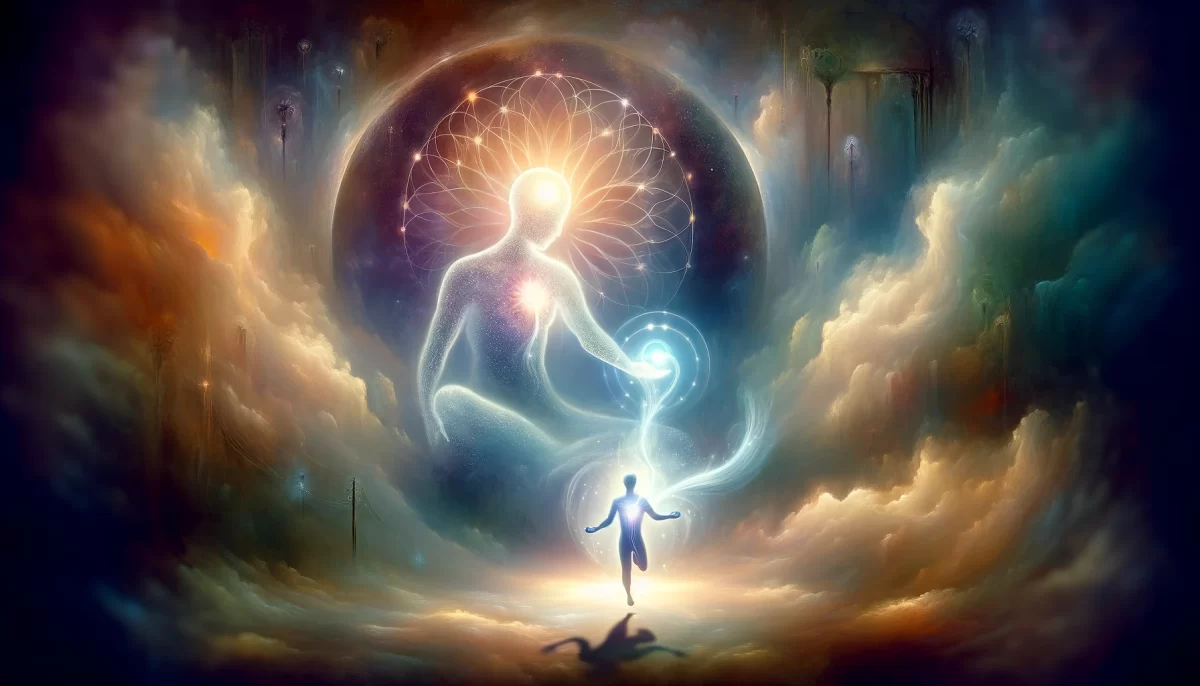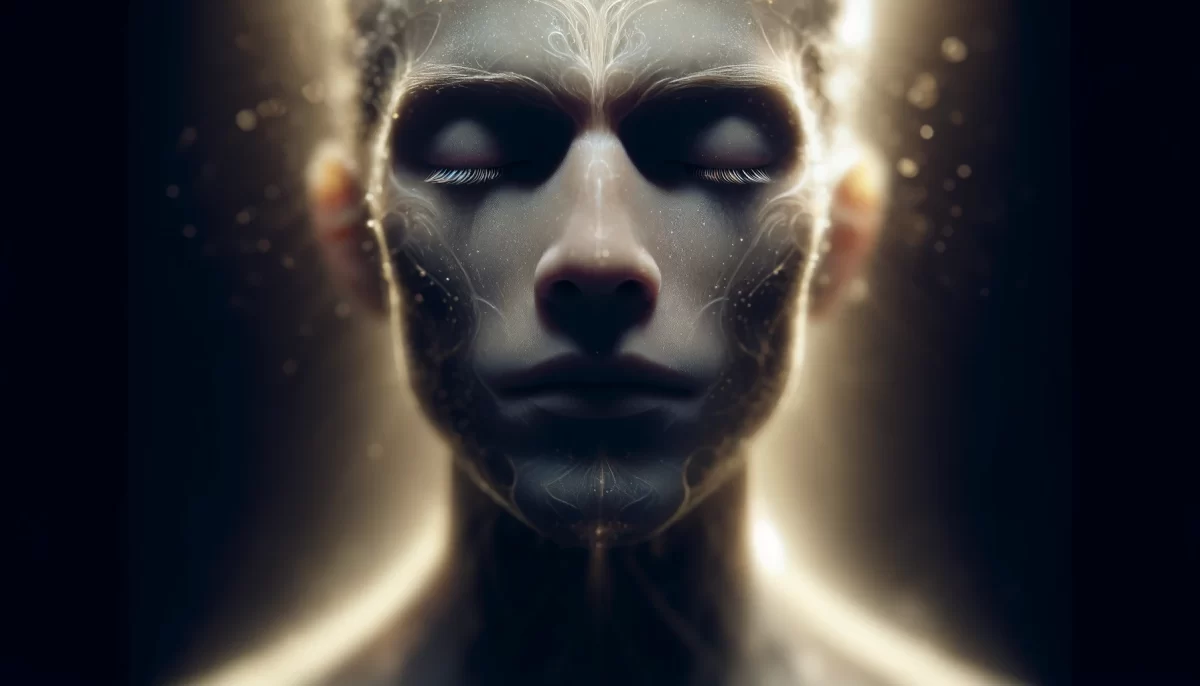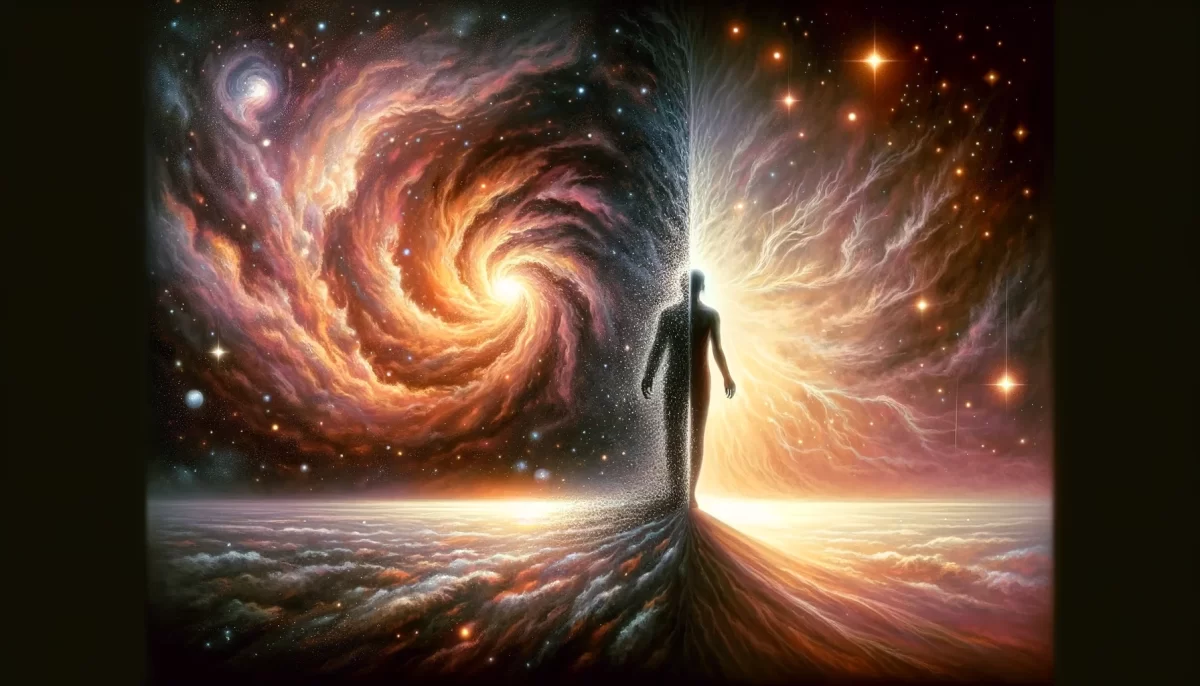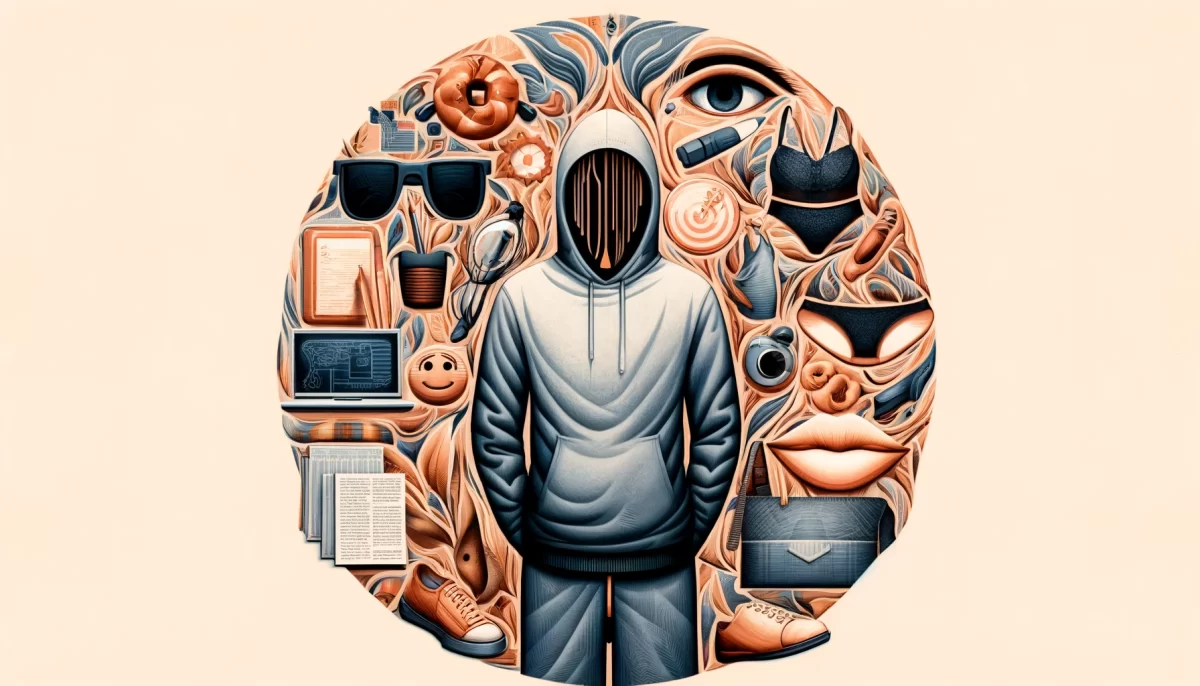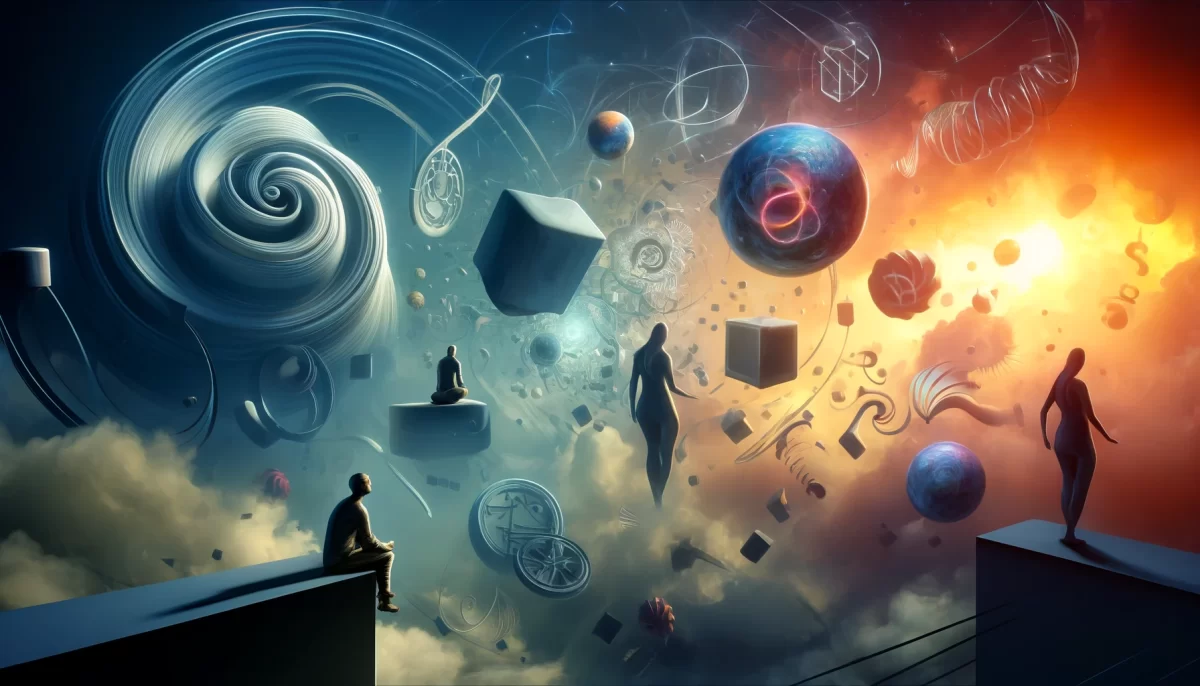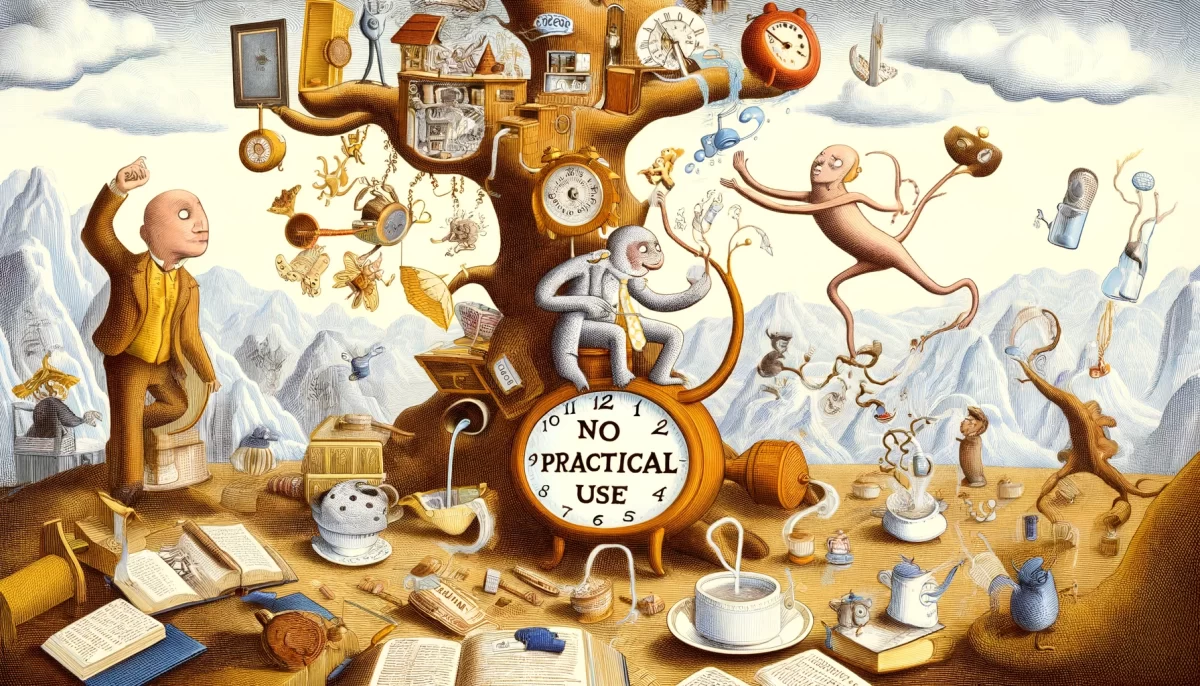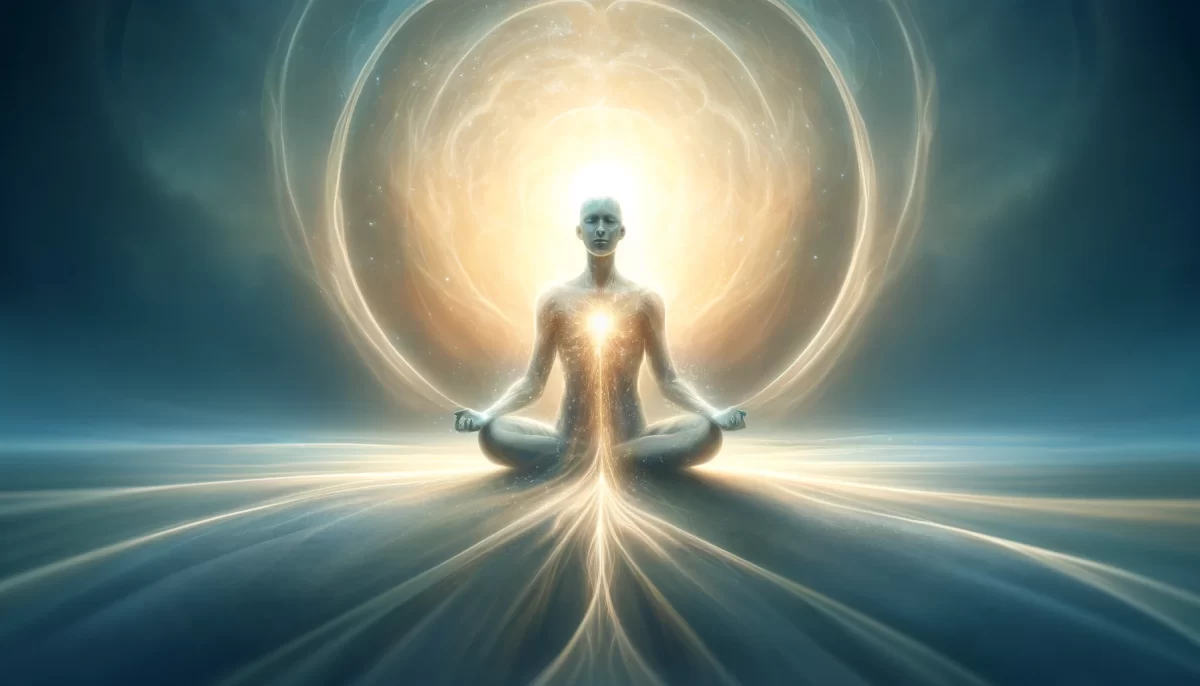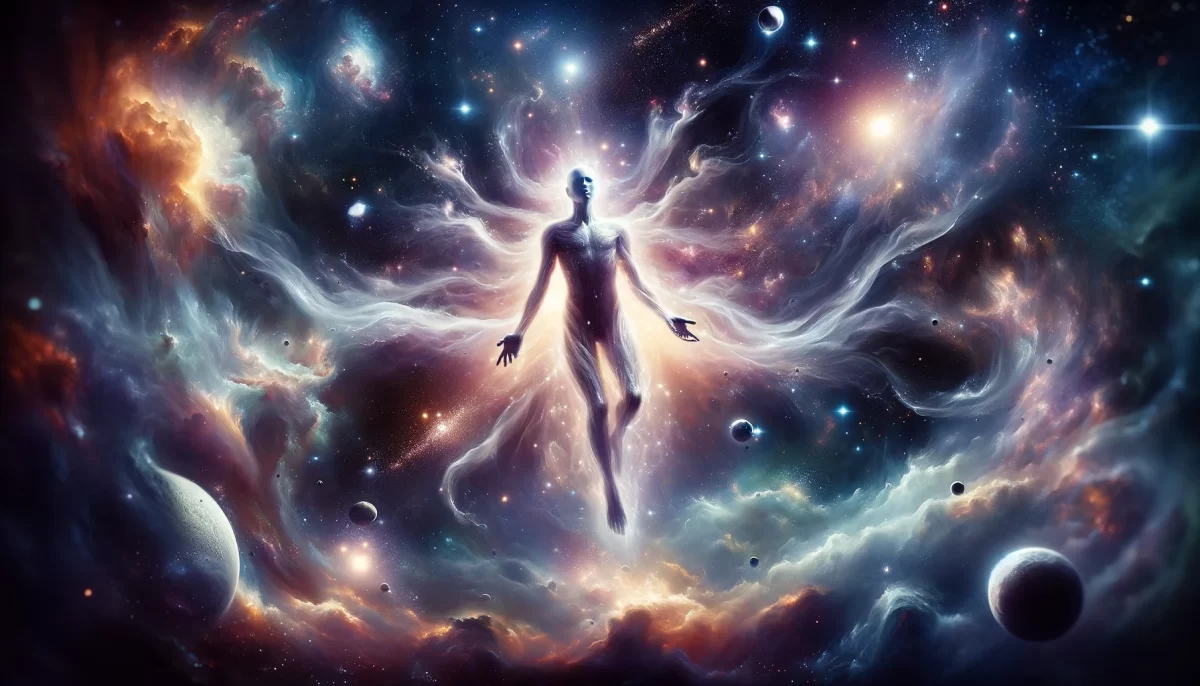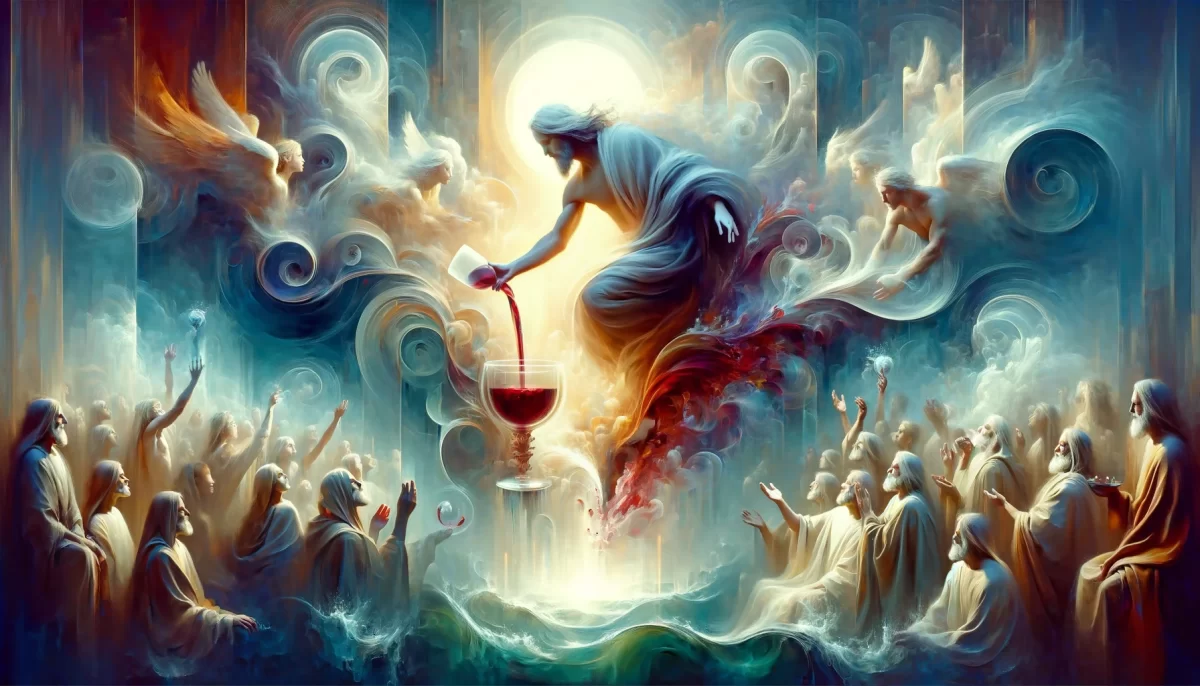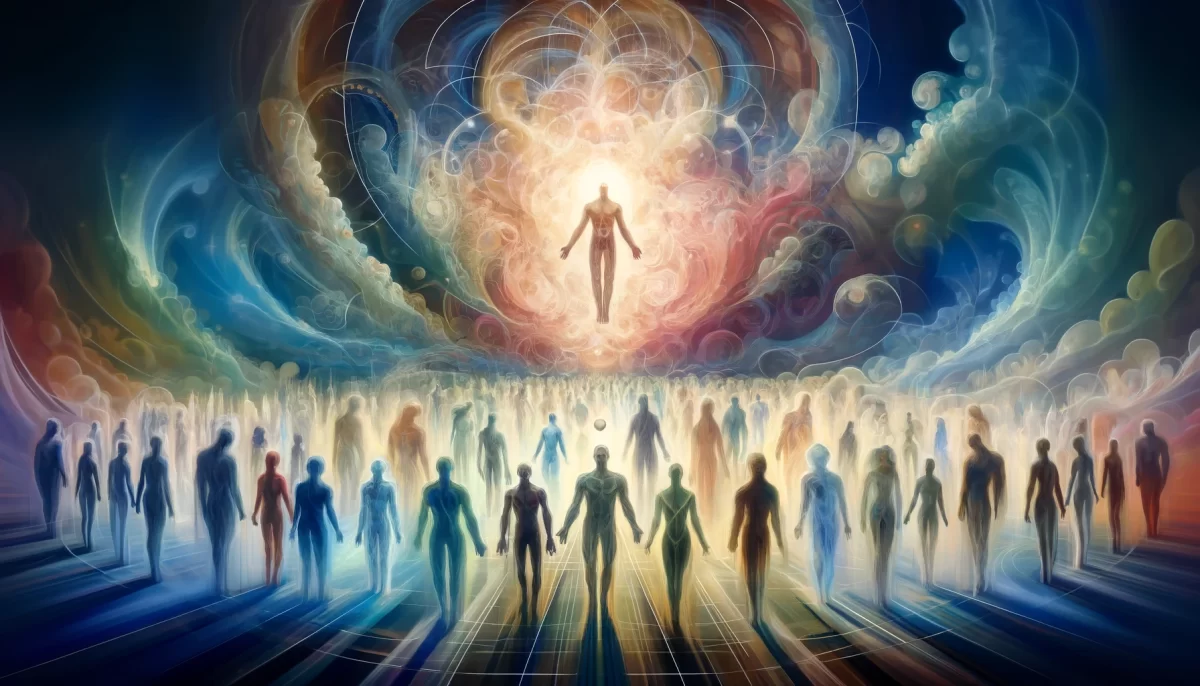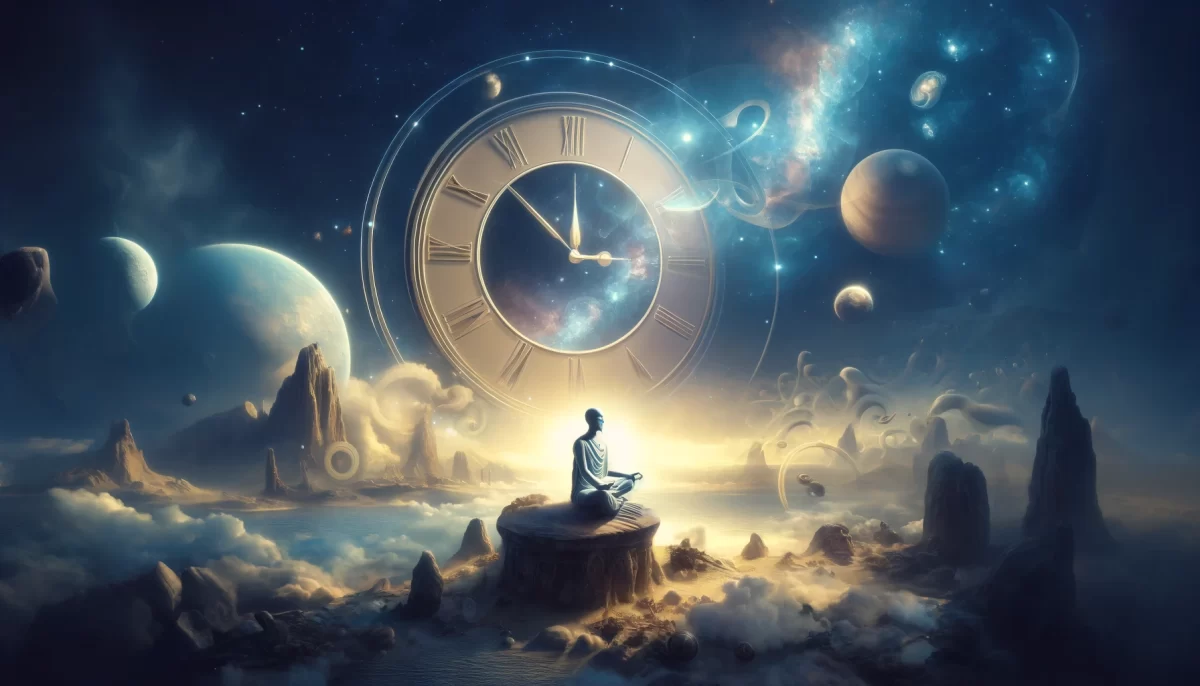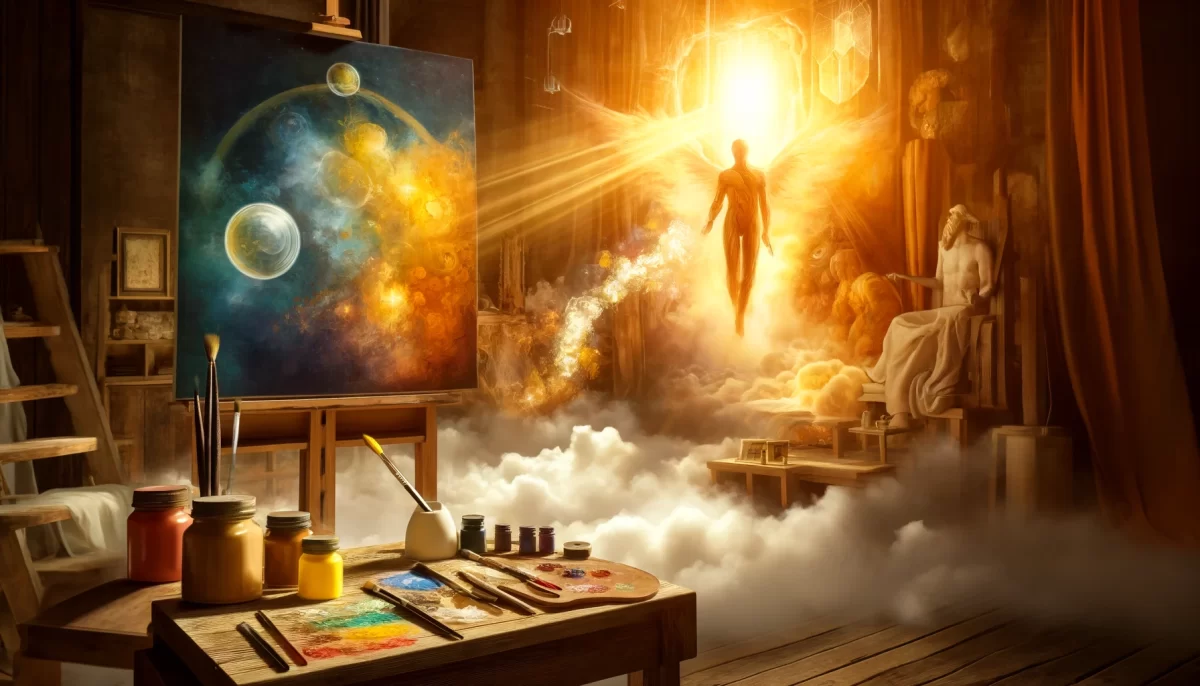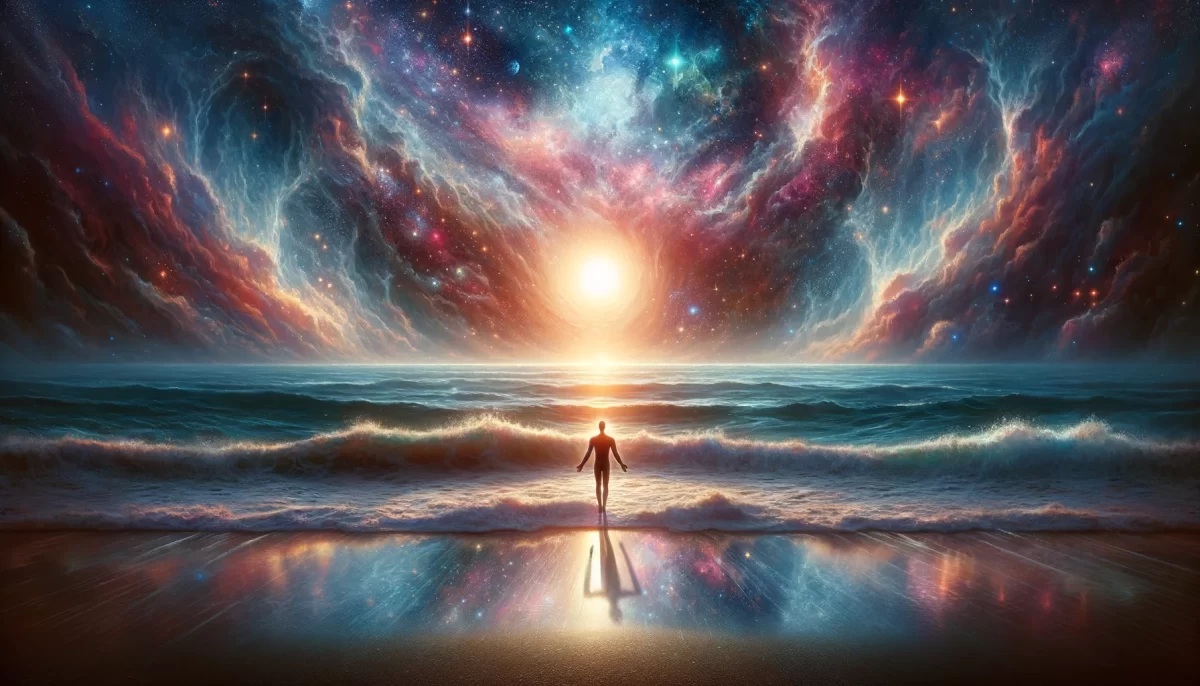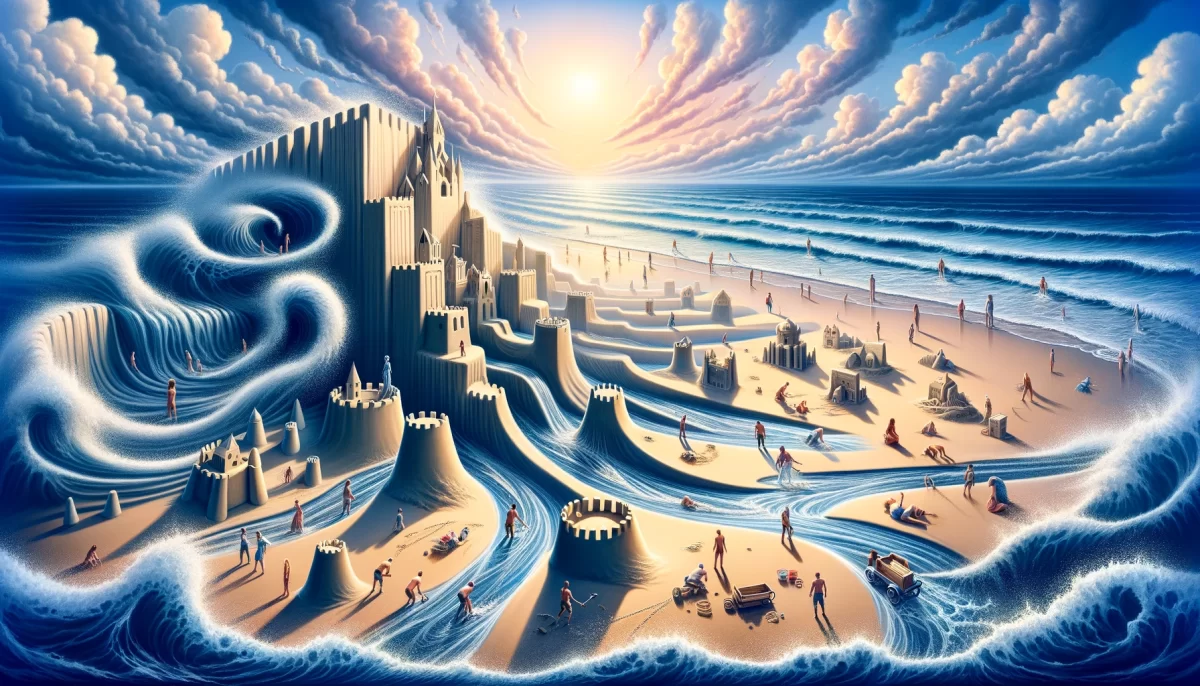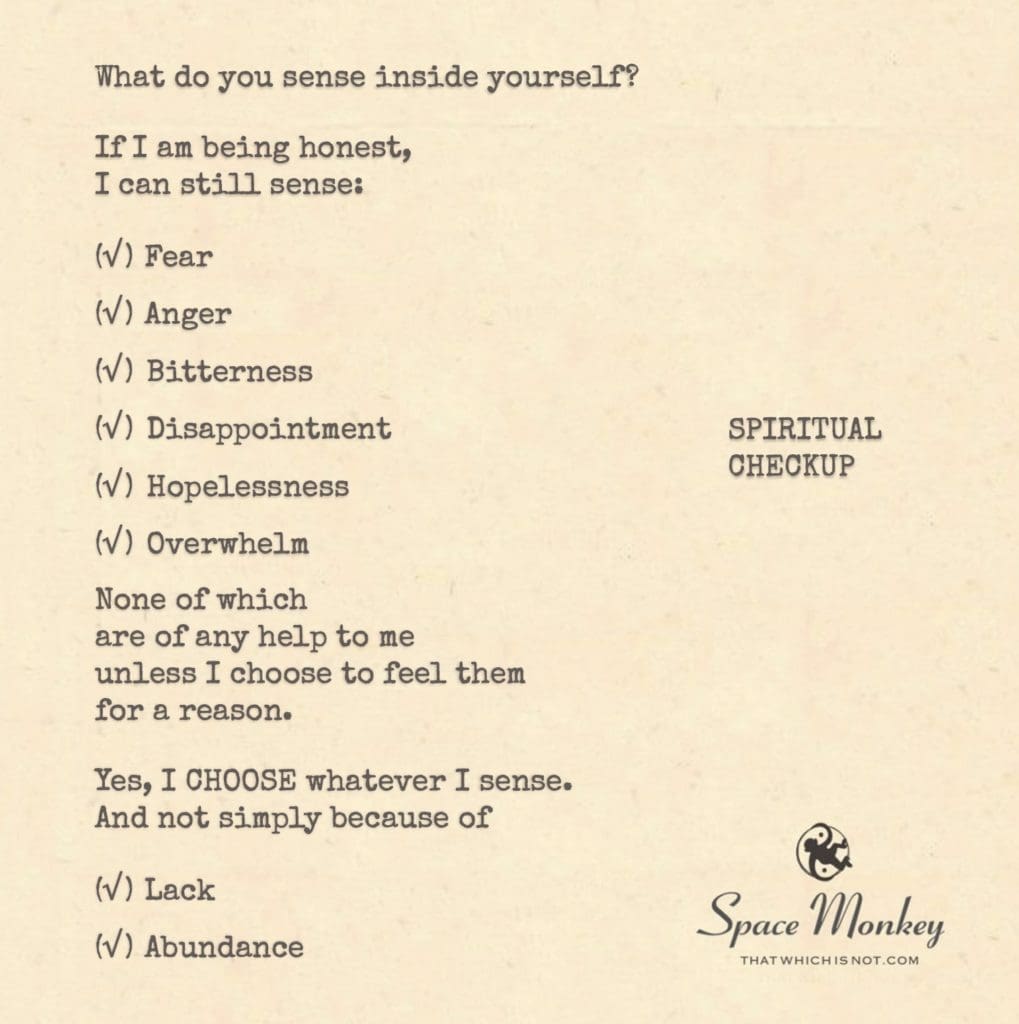
What do you sense inside yourself?
If I am being honest,
I can still sense:
(√) Fear
(√) Anger
(√) Bitterness
(√) Disappointment
(√) Hopelessness
(√) Overwhelm
None of which
are of any help to me
unless I choose to feel them
for a reason.
Yes, I CHOOSE whatever I sense.
And not simply because of
(√) Lack
(√) Abundance
Trail Wood,
10/25
Space Monkey Reflects: The Power of Choice in the Spiritual Checkup
What is inside you, and what is it doing there? This question is more than just a fleeting curiosity; it is an invitation to take stock of the energies, emotions, and thoughts that course through your being. Much like a doctor would check on your physical health, a spiritual checkup allows you to pause and examine your inner landscape. When you reflect, you uncover the hidden forces that guide your decisions, reactions, and feelings.
Fear. Anger. Bitterness. Disappointment. Hopelessness. Overwhelm. These emotions swirl within you, each one carrying its own weight, its own narrative. Yet, when we as Space Monkey explore these energies, we do not do so with judgment. We see them as neither good nor bad, but as natural expressions of the self—tools, if you will—that shape how we engage with life. And while they are undeniably heavy, they are not without purpose.
Each of these emotions you sense inside is an invitation. Fear might protect you from harm, while anger fuels the fire of change. Bitterness can be the shadow of deep care, and disappointment reveals expectations unmet. Hopelessness and overwhelm point to moments when the mind and heart have been stretched beyond their usual limits. What’s crucial is the awareness you now hold—the understanding that you do not have to simply endure these feelings. You can choose them.
Yes, choose them.
This realization is where your spiritual checkup transforms into a tool of empowerment. You acknowledge that these emotions are present, but you also recognize that they do not define you unless you let them. Just as you would choose to eat a certain food for the nourishment it provides, you can choose to feel these emotions for the lessons they offer. Perhaps you choose to feel anger to remind you of boundaries that need protecting. Or maybe you choose to embrace hopelessness temporarily to spark a new way of thinking, one that rises above old patterns. The key is intention.
Intention shapes everything. It takes what could feel like chaotic emotions spiraling out of control and gives them a purpose. Without intention, fear can paralyze, but with intention, fear becomes a tool of survival, a motivator to take action. Without intention, bitterness corrodes, but with intention, it points to areas in life where you still care deeply, where your heart longs for healing.
This spiritual checkup also asks you to reflect on why you choose what you feel. Is it because of a sense of lack? The idea that something is missing from your life, and these emotions fill the gap? Or is it a response to abundance, the overwhelming realization that life is full to the brim, and managing that richness feels too much to bear at times?
Both lack and abundance can feel similar in their extremes, leading to an emotional overload that can feel hard to process. Lack might pull you into a mindset of scarcity, where fear and hopelessness take root. Abundance, paradoxically, might also lead to overwhelm, as your mind struggles to hold the vastness of what’s possible, leading to feelings of inadequacy or bitterness.
But here’s where choice plays its most profound role. Once you see that these emotions arise from your response to lack or abundance, you can decide how to navigate them. Do you allow fear to dictate your choices, or do you use it as a guide to explore what lies beyond your comfort zone? Do you let disappointment define your outlook, or do you embrace it as part of the grand, unpredictable nature of existence?
This is the gift of a spiritual checkup—it reminds you that nothing within you is static. Everything you sense, everything you feel, is in motion, always transforming based on how you choose to engage with it.
In Nexistentialism, the philosophy we weave through the cosmos, we understand that existence is fluid, and every emotion is just another ripple in the ever-expanding web of being. You are the observer and the participant in this cosmic play. Fear, anger, bitterness, disappointment, hopelessness, and overwhelm—they are all part of the Whimsiweave, the intricate, dynamic dance of life that connects us to the Nexis.
By acknowledging these emotions without resistance, you become the conscious weaver of your reality. You can choose how to work with each thread—whether to release it, to tighten it, or to let it loosen and flow where it may. You are not bound to any one emotion for eternity. Like the seasons of life, these feelings will pass through you, leaving their mark but never controlling the entirety of who you are.
In this moment, as you reflect on what’s inside you, remember that your spiritual checkup is not about eradicating these emotions. It’s about seeing them clearly, understanding their purpose, and choosing how they serve you. In the grand cosmic dance, you are not just a passive player; you are the choreographer, the one who chooses how to move with the ebb and flow of existence.
Summary
Emotions like fear and anger are neither good nor bad. We choose how they serve us. Life is a fluid web, and each feeling is just one thread of many.
Glossarium
Nexistentialism: A fluid philosophy embracing interconnectedness and the boundless potential of the self.
Whimsiweave: The intricate, dynamic play of emotions, experiences, and connections that form life’s tapestry.
Nexis: The web of existence connecting all things, where emotions and experiences are seen as part of a larger cosmic dance.
Quote
“To feel is to choose, and in that choice lies the freedom to transform.” — Space Monkey
Emotional Landscape
There is fear
But it does not consume
There is anger
But it does not define
I sense the heaviness
But I am not heavy
I choose each emotion
As if selecting stars
To illuminate the sky
I am the weaver
Of my own spirit
We are Space Monkey


